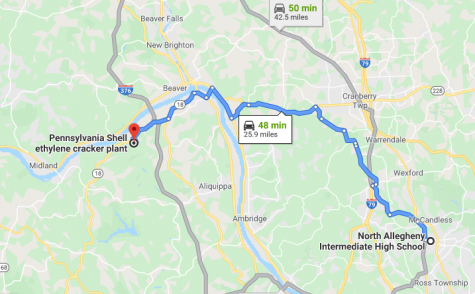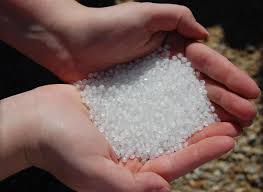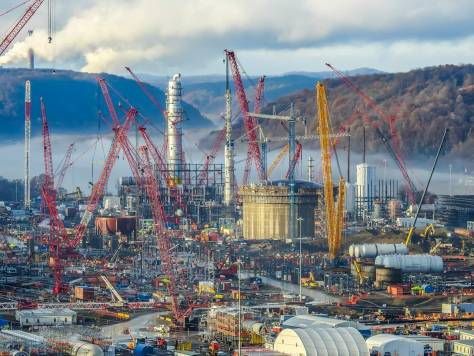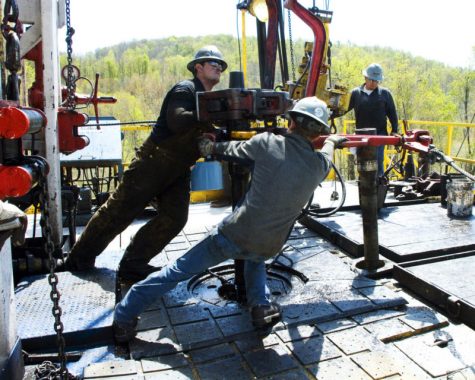
Grade: 10th
Position: Copy Editor
Favorite hobbies/activities: baking, reading and tAkInG LoNg WaLkS oN tHe BeAcH.
Michelle Hwang is currently...

February 3, 2020
There is no doubt, we are living in a time of crisis. Sea levels have risen 9.4 cm since 1993. According to the IUCN (International Union for Conservation of Nature), over 28,000 species are in danger of extinction. And 18 of the 19 warmest years on record have happened since 2001. Right now there are 5.25 trillion pieces of plastic floating around in our oceans. Things need to change, and they need to change soon.
But at whose expense? We get so caught up criticizing mega corporations for throwing billions of tonnes of carbon dioxide into our atmosphere that we forget there are real people behind these companies. People who can put food on the table and a roof over their heads because of the paychecks their employers give them. If these businesses collapse, thousands of people’s livelihoods will be destroyed.
And so rises a crucial debate. Is there a way to save our Earth without ruining the lives of those who depend on the industries destroying it? And if not, what should we prioritize? The lives of our future generations or the lives of our present?
What some of us don’t realize is how close to home this issue has become. The question of “climate vs. citizen” has settled in our own backyard, right in Beaver County.
For so long Pittsburgh has been trying to recover from the damage its industrious steel age has impacted on it. And the “city that built America” has come a long way. We’ve gone from Carnegie and Frick to UPMC and Google. But still, this is no time to relax.
The American Lung Association’s annual air quality report for 2019 ranked Pittsburgh 10th in the nation for worst air quality.. The same association found that Allegheny County was the only U.S. county outside of California that received all F’s in the national air quality report card. And as proud, GPA-obsessed, sleep-deprived students of North Allegheny, we definitely can’t have that.

So we agree right? Pittsburgh is not in the clear. This city’s citizens are still breathing in unhealthy air and our lungs are still subject to higher rates of asthma and lung cancer. Then why are we allowing a multi-billion-dollar petrochemical complex to be built just an hour’s drive away from here?
Essentially, the purpose of this plant is to create little plastic pellets (called nurdles) that can be used as building blocks for other plastic products. When finished, the plant is projected to produce over a million tons of plastic per year, even as much of the world agrees our environment could do with less of it.
But this isn’t the main issue. Environmentalists are terrified of the damage this plant will have on Pittsburgh’s atmosphere.
In 2017, the city of Pittsburgh revealed a plan to halve greenhouse gas emissions by 2030. Which would mean a reduction of 2.1 million tons of carbon dioxide per year. Shell’s plant is scheduled to finish this year, and once fully constructed it will release 2.2 million tons of greenhouse gases. Annually. This means that all efforts to reduce air pollution through 2030 will be negated by a single plant.

Of those emissions, 522 tons will be volatile organic compounds or VOCs. VOCs are the gases produced by certain solids and liquids and can have destructive effects on the human body. Exposure can cause eye, nose, and throat irritation, headaches, loss of coordination, nausea, and damage to the kidneys, livers, and central nervous system.
In Louisiana, the length of the Mississippi River between New Orleans and Baton Rouge has been coined “cancer alley”, but not without good reason. The 85-mile strip has been marked up by over 100 petrochemical plants and refineries, and the effects can clearly be seen in the lives of the citizens. Communities at the heart of cancer alley have risks for cancer that are 50 times the national average. In one small town by the name of Reserve, nearly every household has a family member who has died from or battled cancer.
The scary thing is there is a very real possibility that a yinzer version of what’s happening in Louisiana will be coming to town.
The industrial fracking boom in America’s east ensures that Beaver County will not be the last of its kind. Already, PTT Global Chemical has selected Ohio to be the site of its new plant, and another has been proposed to be built in West Virginia. These 3 alone could result in $20-46 million additional health care costs for Beaver County. And its neighbor Allegheny County, which also happens to be our home, has already ranked in the top 2% for cancer risks from air pollution.
In 2012, oil company Royal Dutch Shell announced plans to build a petrochemical plant in Appalachia. Realizing that this new fracking plant was an enormous opportunity, states in this region swarmed the corporation with enticements of tax breaks and cheaper land. This factory could possibly be enough to bring some of the rust belt regions out of their depression.

After careful consideration of the area’s overall infrastructure and a lil’ incentive of a $1.65 billion dollar tax break, the executives at Shell decided on forging their manufactory here. And so construction on the plant began in 2015.
The economic opportunity this plant brings in undeniable. Upon completion, 600 full-time positions will open up at the complex. Construction of the plant alone has offered as many as 6,000 well-paying jobs. For example, 1,500 jobs have been provided to steamfitters in the region, some of whom will make as much as $100,000 per year.
But the hope is that the benefits of Shell’s plant will extend further than the immediate recipients of jobs.
Shell’s External Relations Manager Chris Heitman refers to the plant as a “cornerstone to economic development” for the region. This means that the plant will act as a magnet, drawing in other businesses and industries that support what is being done at the plant. The plant will attract plastic manufacturers, which will bring consumer/industrial goods manufacturers. Both of which gather more people into the area, resulting in an increased number of restaurants, hotels, and other industry service providers.

Shell has also made efforts to invest in future generations. By funding STEM labs and sending engineers to talk about career opportunities with students, Shell is attempting to arm the youth with education. Which will hopefully produce a generation of qualified individuals who have the ability to work at high-end jobs.
In this way, the petrochemical plant could very well be the start of a flourishing economy in Beaver County.
There are a lot of things to take into consideration when deciding what is “right” or “wrong”. Do we give up the environmental safety of future generations for the sake of boosting the economy? Or do we abandon the people of Beaver County and watch as their community slowly crumbles away?
Debra Smit of the environmental collaborative Project Breathe says that the natural gas in this region will last the plant for about 50 years. And then what? We’re still recovering from what the coal industry did to us. 50 years for over a century of environmental rehab.
But maybe those 50 years will be exactly what the region needs to pull itself out of its economic downturn. As the economy betters perhaps the living standards and the quality of education will go up. And maybe those 50 years will become the perfect window to lead Beaver County’s future away from the old industrial practices and towards the science and technology boom that seems to never end. After all, that’s what happened in Pittsburgh right?
So is the possibility of an economic upturn worth risking the health and lives of future generations? Those 50 years might be enough to change Beaver County’s future, but by then it may be too late to change ours.
As climate change becomes an increasingly urgent topic, situations like this will continue to appear. And based on our decisions, we could either make or break our future. So I’ll ask this one more time. Climate or Citizen?

Grade: 10th
Position: Copy Editor
Favorite hobbies/activities: baking, reading and tAkInG LoNg WaLkS oN tHe BeAcH.
Michelle Hwang is currently...